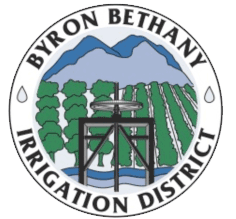Byron, CA (February 28, 2017) – Byron-Bethany Irrigation District General Manager Rick Gilmore issued the following statement:
“In what’s shaping up as the wettest year on record, farmers in Byron-Bethany Irrigation District’s (BBID) Central Valley Project (CVP) service area are stuck in limbo, their water held hostage apparently at the behest of federal fishery agencies.
Today’s extremely puzzling announcement from the U.S. Bureau of Reclamation means some CVP users will receive a full 100% allocation in 2017, while many of their immediate neighbors, including BBID, will have to wait weeks to find out what this year’s water supply will be. This nonsensical, imbalanced approach introduces unnecessary and potentially costly uncertainty to many of the District’s growers, who are now forced to wait to plant crops.”
“As we have seen time and again, federal fisheries are hoarding water in a misguided effort to keep river temperatures at an arbitrary level to protect fish – at everyone else’s expense. Today’s announcement underscores how badly the water supply system, built to bring water to farms and communities, has been commandeered by environmental interests.
With months left in the rainy season, reservoirs are already filled. The Bureau itself acknowledged historic precipitation levels. There is plenty of water to go around. And yet, there is still no balance in sharing our overflowing supplies between mounting environmental demands and the water users who fund the system and rely upon its supplies. Our growers expect – and deserve – better.” – Rick Gilmore, GM
